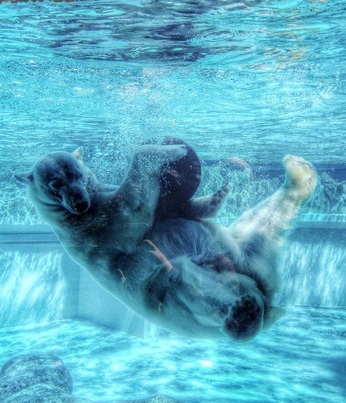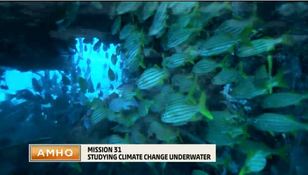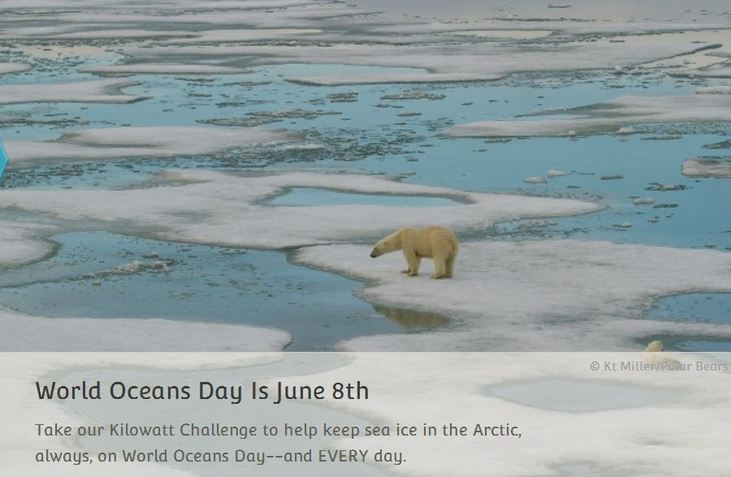| When you think marine mammals, do you think polar bears? I didn't until I learned more. Polar bears are the only bear considered a marine mammal. Their scientific name, Ursus maritimus, translates to "maritime bear." Born in snow dens, they spend most of their time on the frozen sea, which they use as a platform for hunting seals. Mission 31 will study climate change effects on some tropical creatures. Although the Florida Keys have no polar bears, ocean health and climate change research impacts all sea life, from zooplankton (microscopic animals) to polar bears (up to 1,200 lbs). Want to know more? 20 Interesting Facts about Polar Bears. A greater understanding of our oceans is needed at this critical time of dwindling resources and increased pollution. The oceans affect more life than we think. |
Ocean Food Chain, Top to Bottom
| Specifically, Mission 31 experiments will study climate change effects on zooplankton and coral reefs, marine life found in the Keys. An overview of all M31 science research is at blog post 5/24/14. Polar Bears International, the world's leading conservation group for polar bears, will celebrate World Oceans Day on June 8 in honor of all ocean life, large and small, even the ones that don't first come to mind! | |
World Oceans Day
World Oceans Day day will be a big day for Mission 31. Media and celebrities, including Dr. Sylvia Earle and actor Ian Somerhalder, will visit us in the Keys and there'll be a celebration underwater (what better place to celebrate?). Up to World Ocean Day, I'll post daily about the wonders of the ocean, the current issues it's facing, and how we are bringing attention to those during Mission 31. Stay tuned!
More blog at What's Mission 31 About? This is Worth the Watch.





 RSS Feed
RSS Feed
